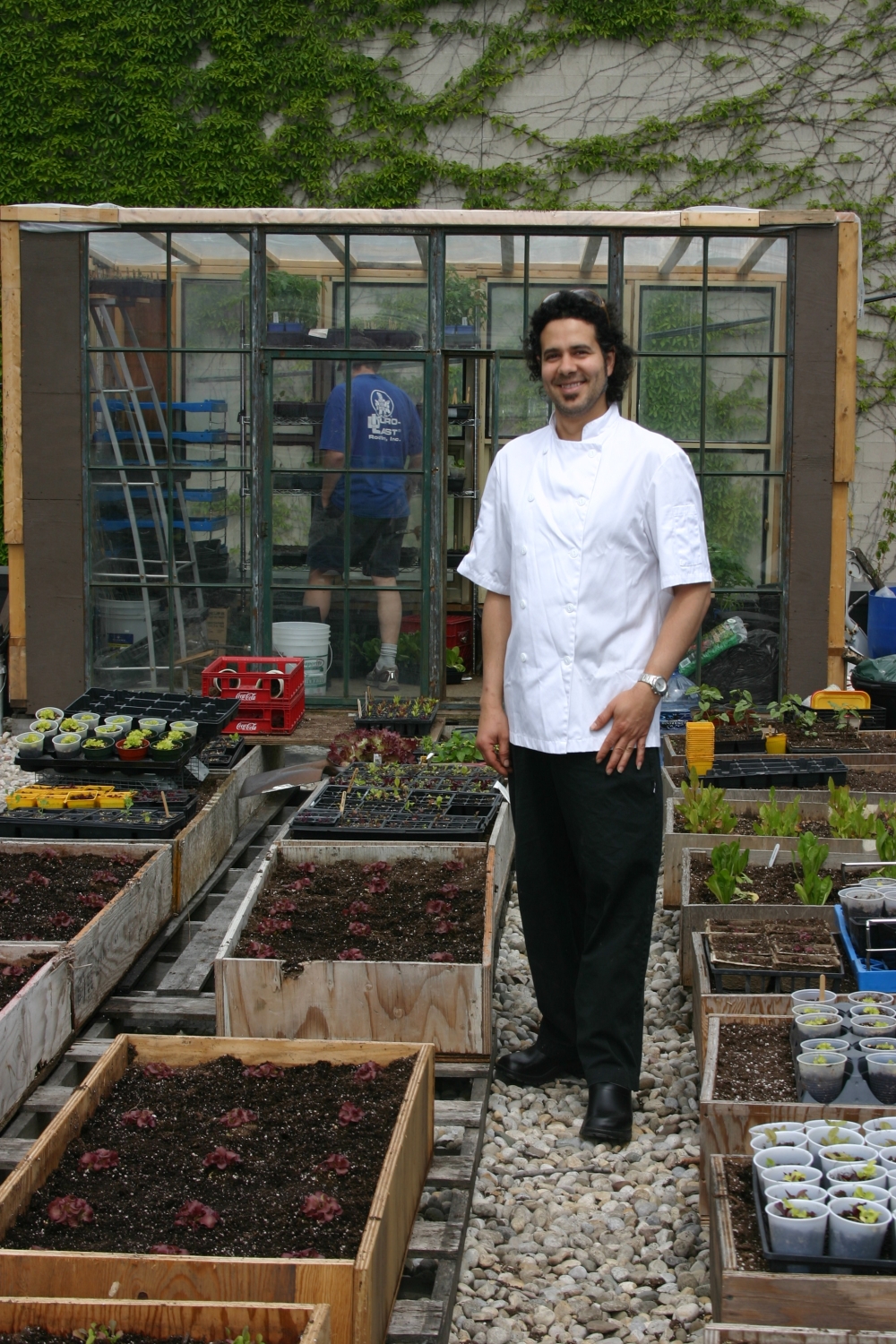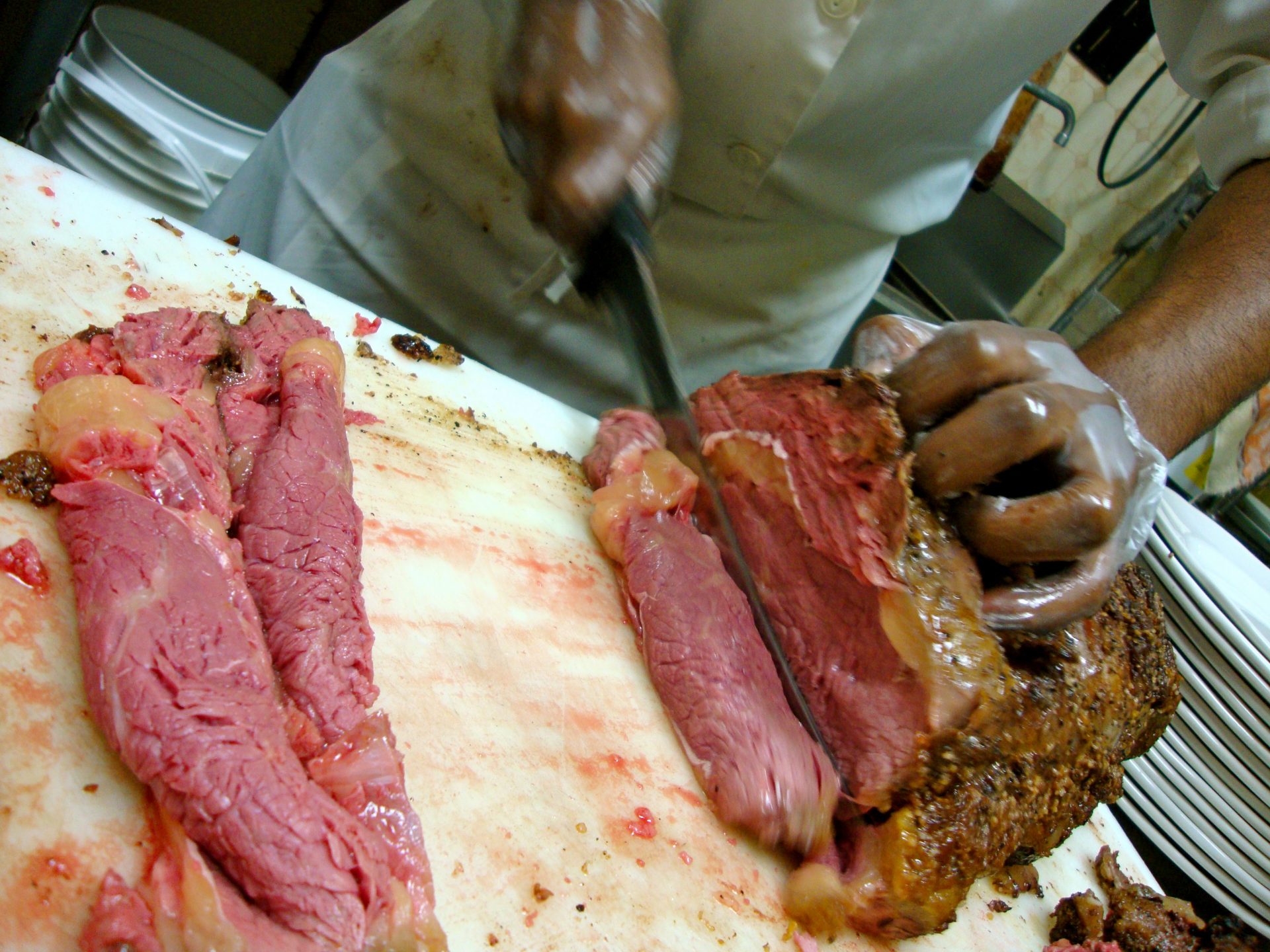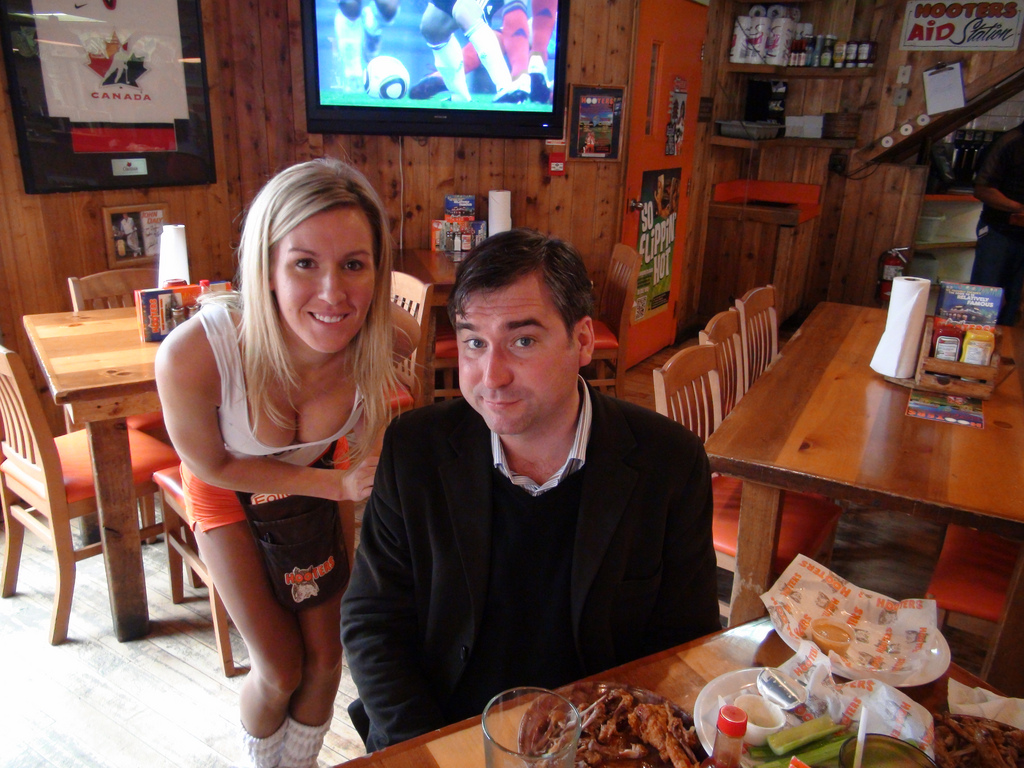Words and pictures by Kelly Jones
What could be more compelling to an urban foodie than sitting down to a lunchtime salad of fixings that have been pulled from the soil—Toronto soil—just moments before?
For people who, like me, are unable to grow their own edibles on their diminutive downtown lots, spaces dominated by hefty, century-old trees with extensive canopies, this concept of urban rooftop gardening and harvesting speaks to conscientious consumption on so many levels—shrinking the carbon footprint, consuming the freshest of fresh produce, and supporting the locavore movement, to name a few.
Tawfik Shehata, chef at Vertical Restaurant in Toronto, along with business partner Jamie McAuley, who runs Weezie’s down the street, make this kind of eating experience possible.
Shehata is an award-winning chef, whose approach has been coined as “sense and seasonality.” He was voted as one of the “Top Ten Chefs in Canada” by enRoute Magazine, was rated as one of the “Top Ten New Chefs in Toronto” at the Gourmet Food and Wine Expo, and was named by enRoute Magazine as one of 25 restaurants across Canada that will shape the dining scene in 2007 and beyond.
McAuley purchased the building on King Street East near Sackville Avenue about four years ago. Although still undecided on how to purpose the main floor, the rooftop has been put to good use since he signed the deed. This year, Shehata plans to really take advantage of the space with McAuley, and, by the looks of it, he’s making good on his intention.
White bedrock covers the 3,000-square-foot, L-shaped space, and an ancient tree shades parts of it come late spring, providing a variety of micro-climates for the dozens of plants and vegetables that Shehata and McAuley grow here—pea shoots, red and green oak lettuces, heirloom tomatoes, eggplants, fava beans, hot peppers, herbs.
“We can’t grow everything up here. I’m not about to trellis pumpkins… I try and source seeds for things that aren’t easily accessible locally and then grow them myself,” Shehata explains.
Similar to rural farming, the plants here are at various stages of maturation, some in teeny plastic plug trays, others in larger cups, and the most mature set into 18-inch-deep wooden planters filled with a mix of vermiculite, perlite, peat, and coconut—a less dense soil blend that lightens the load when it comes to moving the boxes around the rooftop.
Vertical Restaurant doesn’t focus exclusively on serving local food creations, but a look at their menu reveals that Shehata grows what he can himself, then sources other ingredients from local farmers, and finally reaches outwards when needed—as in a salad of homegrown baby red and green romaine, a tenderloin from a naturally raised Ontario cow, or a smattering of seared scallops from the East Coast.
One of the biggest advantages of rooftop gardening—aside from the obvious time and money saved, and the decreased environmental impact from having only to walk a few blocks to secure produce—is the reduction of hours spent weeding. Because the garden is elevated and set apart from other fertile cultivated land plots, fewer unwanted seeds find their way into the soil here.
Unfortunately urban rooftop gardening has its disadvantages too. Shehata shows me the little holes in the dirt where squirrels have rummaged around. He shows me the squirrel cages, too, recently purchased and soon to be baited with peanut butter. As if on cue, one of the brown, bushy-tailed rodents scurries along a telephone line just a few feet away, pauses to smirk, then carries on.
It’s an unpolished space, with graffiti on a neighbouring wall, some construction-supplies-in-waiting taking up a portion of the roof, and a greenhouse built completely from reclaimed materials along the east edge.
Despite the rough appearance, it feels homey up here, just 12 feet or so away from street level. Shehata listens to jazz on the radio as he plants and tends and harvests, and there are plans to build a patio in the corner, for lounging, or maybe even eating.
“It’s therapeutic,” he tells me. “Just to be here, digging and planting and watching things grow, but also to be out of the kitchen for a few hours. . . . I’d like to be here four days a week for an hour, an hour and a half.”
For those interested in creating their own rooftop garden to augment their kitchen creations, Shehata shares a secret of his success: “I’m always asking questions. I’m always asking questions of farmers and suppliers and other growers. And people seem happy to give suggestions on how to make things grow better.” It’s clear by looking around that his curiosity and determination have served him well.
 Kelly Jones is a freelance writer and editor. She teaches Food Writing at George Brown College.
Kelly Jones is a freelance writer and editor. She teaches Food Writing at George Brown College.













